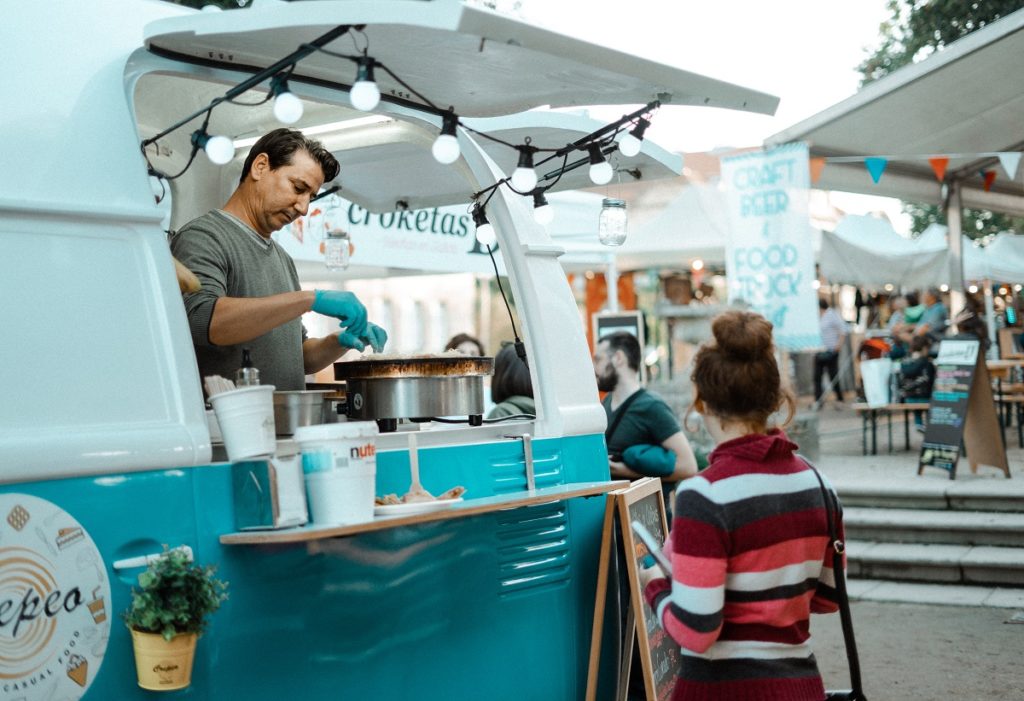Before the coronavirus pandemic hit economies and food industries, the food truck business was a $3-billion industry. It has been exponentially growing in the past couple of years. It owes much of its success to young urbanites and tourists flocking the city streets. Food truck businesses, after all, are the perfect avenue to test the waters. Will the market react positively to what you’re offering? If it does not, the mobility of food trucks makes it very easy to change the menu and the business setup.
It’s so easy to start, too. You just have to talk with an RV dealership in your area. You can get a secondhand RV or minibus that you can transform into an ice cream truck or one that serves gourmet hotdogs and burgers. You can seek an RV repair shop for this. Anything is possible with food trucks.
How Food Trucks Came to Be This Big
Food trucks haven’t always had access to such a massive market. Meaning, young corporate people and families in parks didn’t always love the idea of getting their food from the place where construction workers get theirs. The food trucks were meant to offer convenient and cheap food to laborers. They were the food of the masses. Food trucks offered cheap hotdog sandwiches, sodas, and fries pre-2102. That’s it.
But by 2012, when the industry was worth $650 million, people began appreciating the convenience of getting their food from these trucks more. Why run to the nearest McDonald’s when you’re at the park with your family when the food truck is right there? Why do you have to prepare a picnic basket when you can get the same food you can make from food trucks? Why spend $10 during your lunch break when the food truck offers food at $3 each?
By 2017, the industry was worth $2.7 billion. It grew more than brick-and-mortar restaurants. That ice cream truck that once passed by your street when you were a kid is now worth thousands of dollars.
And yet, not everything is a success story in the industry. Even before the pandemic hits, there are a lot of food truck businesses closing down because of one bad decision after another. What were they doing wrong?
A Lack of Business and Financial Knowledge
Above all things, a food truck is a business. No matter how fun it is to make these foods for your customers, your goal is to earn. You can’t offer the food with only a $1 profit margin. How are you going to pay your people and the rent? You have to specify the operational costs of the business, as well as the marketing and branding plans and industry-specific challenges. Without knowledge on how to manage a business, your food truck is bound to fail.
And then, there are the necessary things like permits, licenses, taxes, and insurance. You can hire an accountant for these, but a good entrepreneur must also understand how these are being done. You can’t focus on menu items and expect the other things to fall in place. It’s a lot of work, but it’s work that needs to be done efficiently.
High expenses are the common reason why food truck businesses fail. You may think your business is thriving because of the long lines during lunch and dinner. However, if you don’t have a handle on your cash flow and expenses, you’re putting your business in a financial crunch.
Hiring the Wrong People

Like any other business, the success of your food truck is dependent on how efficient and productive your people are. You are going to count on these people not only to flip the burger patties but also to expand the business through social media marketing and customer service. If you plan to open another business in another location, you can’t be at two places at once. You will need to rely on your employees to do the work that will bring your business success.
Not Having an Identity
What does your food truck offer that others don’t? If you’re offering the same menu items as the next truck, what will separate you from them? Is it a better presentation? The more affordable pricing? The combos? In today’s industry, branding is as important, or more important, than how your food tastes. Your food truck should have an identity that resonates with your target market. It should be Instagram-worthy. The brand is a social status, so you need to work on that and stick to it.
The challenges of owning a food truck should not hamper your dreams about having one. Although the food industry has been heavily impacted by the pandemic, it is still one of the first ones that will survive, experts said. It’s only a matter of time before these trucks are back on the streets again, so make sure you have everything covered by then.

